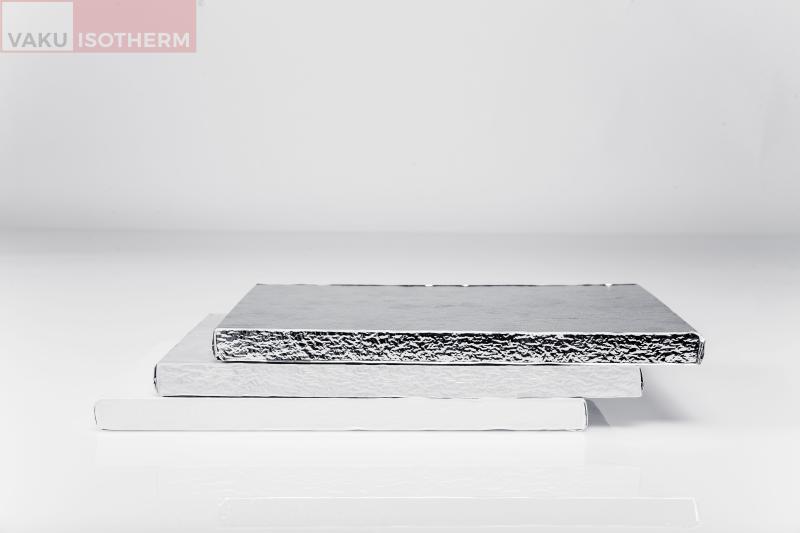Vacuum Insulated Panels (VIPs) are a gold standard for temperature-controlled shipments. They have a long lifespan and offer reliable protection for the most valued life-saving and health-giving products. For the past 30 years, they’ve been increasingly used in the refrigeration, construction, and logistics industries because of their performance and ability to maximize the usable area of insulated applications.
But what happens when VIPs reach their end of life? Infuse innovation.
VIPs have the highest greenhouse potential and embodied energy relative to thermal resistance compared to other insulation materials, according to Resalati et al. (2019). The high ecological cost is primarily from production of pyrogenic silica from quartz sand, which requires significant energy. Recycling VIP support cores could reduce the ecological cost by 95 percent.
Disposing of life-expired panels, however, is historically challenging. After VIPs are used, they are usually disposed of in landfills or incinerated. The reuse of the entire VIP or its components are not standard practice. The main reasons: reverse logistics are challenging and material changes often result in a higher total cost of ownership.
In partnership with its European VIP supplier, Vaku-Isotherm, and the help of the German Federal Environmental Foundation, Peli BioThermal is tackling this challenge to create a circular economy for VIP cores.
Vaku-Isotherm is currently developing a process to recycle VIP support core material with a maximum recycled content. Peli BioThermal and Vaku-Isotherm commit to recycle 140 pallets of end-of-life panels annually, expected to be reused in construction or other industries. The impact is significant.
According to a detailed calculation, the potential carbon emissions savings equals 306 tons of CO2e for the Vaku-Isotherm product and 13,391 tons of CO2e worldwide. The entire VIP global market results in a savings potential of 55,704 tons of CO2e, and in a study by Resalati et al. (2019b), the GWP decreases from 10.9 kg CO2e/kg to 1.95 kg CO2e/kg with a recycling rate of 90 percent of the support core.
“We have been investing in the sustainability of our value chain for many years,” said Sebastian Baars, Chief Executive Officer at Vaku-Isotherm. The logical next step is to include end-of-life VIPs, with the overall goal of a circular economy.”
The project, titled “Kreislaufführung von VIP-Stützkernen” or “Circular Economy of VIP Cores,” will support Vaku-Isotherm’s goal of reducing raw materials by reusing the fumed silica from quartz sand. Reusing silica in applications such as the production of silicon and materials like concrete are expected to support a 40 percent reduction in raw materials.
The project will also reduce Peli BioThermal’s CO2 emissions by 9kg CO2 per 1kg of VIP core recycled a year.
According to Barbara Zukrowska, Director of Continuous Improvement and ESG at Peli BioThermal, “This project has sustainability at its heart. And by partnering with one of our suppliers, we achieve so much more than what we could accomplish alone.”
Reduce. Reuse. Recycle. Repurpose. Together, Peli BioThermal and Vaku-Isotherm are committed to making a difference for people and the planet.

